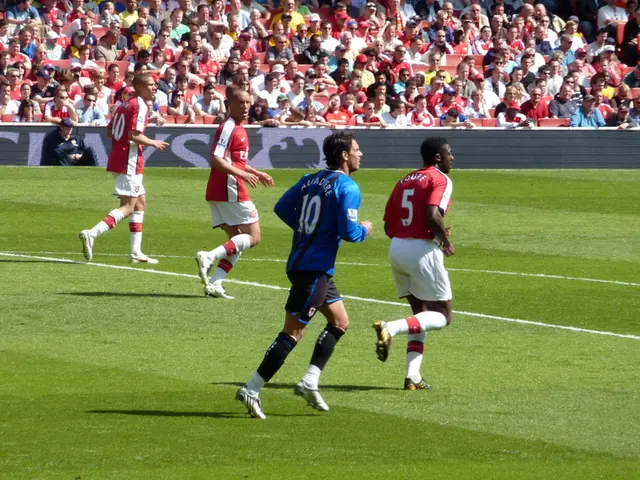Dad's $1 Million Family Savings Lost in DraftKings, Prompts Settlement with NJ Mother
In a recent legal dispute in New Jersey, DraftKings, the popular online sports betting platform, has reached a confidential settlement with Lisa D'Alessandro, the ex-wife of a man known as Mdallo1990. The case centered around allegations that DraftKings enabled Mdallo1990's gambling addiction, leading to significant financial losses.
The lawsuit, filed by D'Alessandro, claimed that DraftKings treated Mdallo1990 as a VIP customer, offering incentives such as free bets and gifts, which contributed to his gambling habits. She argued that DraftKings should have recognized and intervened in his problem gambling due to the rapid increase in his deposits, from less than $25,000 in 2020 to over $777,000 in 2023.
DraftKings, however, contested the claims, arguing that they do not have a duty of care towards problem gamblers under the Casino Control Act. The company maintained that the losses were solely the result of Mdallo1990's independent actions and denied liability for negligence and conversion.
The case raised questions about the duty of care and jurisdiction, with D'Alessandro seeking the return of the $942,232.32 her husband had lost gambling, arguing that it rightfully belonged to her and her two children.
The settlement was reached confidentially, with the terms not disclosed. It's worth noting that New Jersey courts have previously ruled that sports betting operators generally do not have a duty of care towards problem gamblers, which may have influenced the settlement.
The case serves as a reminder of the ongoing debate about how sports betting operators manage problem gamblers and whether they should be held accountable for failing to intervene in cases of addiction. While there was no formal court finding of liability, the settlement highlights the need for continued discussion and potential regulation in this area.
[1] https://www.nj.com/business/2024/05/draftkings-sued-by-wife-of-man-who-lost-15m-on-the-platform.html [2] https://www.forbes.com/sites/greatspeculations/2024/06/01/draftkings-sued-by-ex-wife-over-15m-gambling-losses/ [3] https://www.bloomberg.com/news/articles/2024-07-10/draftkings-settles-lawsuit-with-ex-wife-over-alleged-gambling-addiction [4] https://www.nj.com/opinion/2023/08/draftkings-and-other-online-gambling-sites-should-be-held-accountable-for-enabling-gambling-addiction.html
- The settlement reached in the New Jersey lawsuit between Lisa D'Alessandro and DraftKings, a prominent online sports betting platform, remains undisclosed, yet the case serves as a significant discussion point in gambling-trends and responsible-gambling debates.
- The lawsuit, driven by D'Alessandro's claims that DraftKings enabled her ex-husband's problem gambling addiction and subsequent significant financial losses, has raised questions about the duty of care online sports betting operators should have towards problem gamblers.
- Despite the settlement, DraftKings has maintained its stance that it does not have a duty of care under the Casino Control Act, pointing to the losses being the result of the individual's actions and denying liability for negligence and conversion.
- As the gambling landscape expands, with online sports betting, casino-games, poker, and more becoming increasingly popular, situations like the one between DraftKings and D'Alessandro will likely continue to spark conversation about how best to protect those susceptible to gambling addiction.
- It's important to remember that problem gambling, much like other addiction, can lead to significant harm, impacting not just the individual, but also their families, as was seen in the case involving D'Alessandro and her children. Efforts should be made to promote responsible-gambling practices to prevent these issues.








